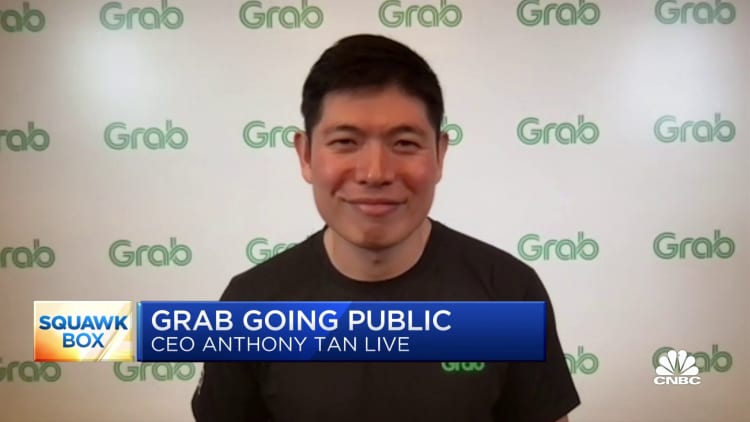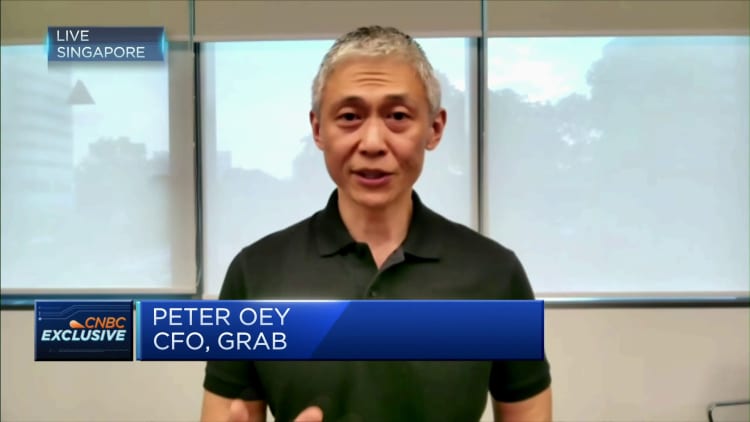Singapore technology ride-sharing and food delivery service company Grab logo is displayed on a smartphone screen.
Budrul Chukrut | Sopa Images | Lightrocket | Getty Images
Singapore-based ride-hailing and food delivery giant Grab narrowed losses and broke even in its deliveries segment for the first time since 2012, during the third quarter.
The company posted an adjusted earnings before interest, taxes, depreciation and amortization loss of $161 million, a 24% improvement from the adjusted EBITDA loss of $212 million in the same period a year ago. EBITDA is a measure of profitability that shows earnings before interest, taxes, depreciation and amortization.
Grab offers a range of services including ride-hailing, food delivery, package delivery, grocery delivery and mobile payments through GrabPay.
The company said its delivery business broke even three quarters ahead of expectations, “primarily due to optimization of our incentive spend, and contributions from Jaya Grocer.” In January, Grab acquired a majority stake in Malaysian mass-premium supermarket chain Jaya Grocer to accelerate its expansion into grocery delivery.
Food deliveries also reported positive adjusted EBITDA in the third quarter, two quarters ahead of its previous guidance.
“We achieved core food deliveries and overall deliveries segment-adjusted EBITDA breakeven ahead of guidance while narrowing our overall loss for the period significantly. We accomplished this by staying laser-focused on our cost structure and incentive,” Anthony Tan, Grab co-founder and group CEO, said in a statement.

U.S.-listed shares of Grab rose 0.64% to close at $3.15 a piece in Wednesday trade, outperforming the S&P 500 and Nasdaq Composite which declined 0.83% and 1.54%, respectively.
Grab went public in December 2021 after closing its SPAC merger. The stock has plummeted 56% year to date.
Driving toward profitability
Grab’s monthly average active driver-partners in the quarter hit 80% of pre-Covid levels. The company also said incentives declined to 9.4% of GMV, compared with 11.4% for the same period last year and 10.4% for the previous quarter.
“This demonstrates our commitment to growing profitably and sustainably,” said Tan.
Grab raised its full-year forecast and now expects revenue between $1.32 billion and $1.35 billion, up from the previous range of $1.25 billion to $1.30 billion. It also revised its adjusted EBITDA outlook for the second half of the year and now expects a loss of $315 million, better than the $380 million it previously predicted.
“We will aim to better optimize our cost structure by limiting discretionary spending,” Grab CFO Peter Oey said during the media conference.
“We began pausing or slowing hiring in various corporate departments. We’ve also been disciplined to optimize costs in non-headcount overheads,” he added.



